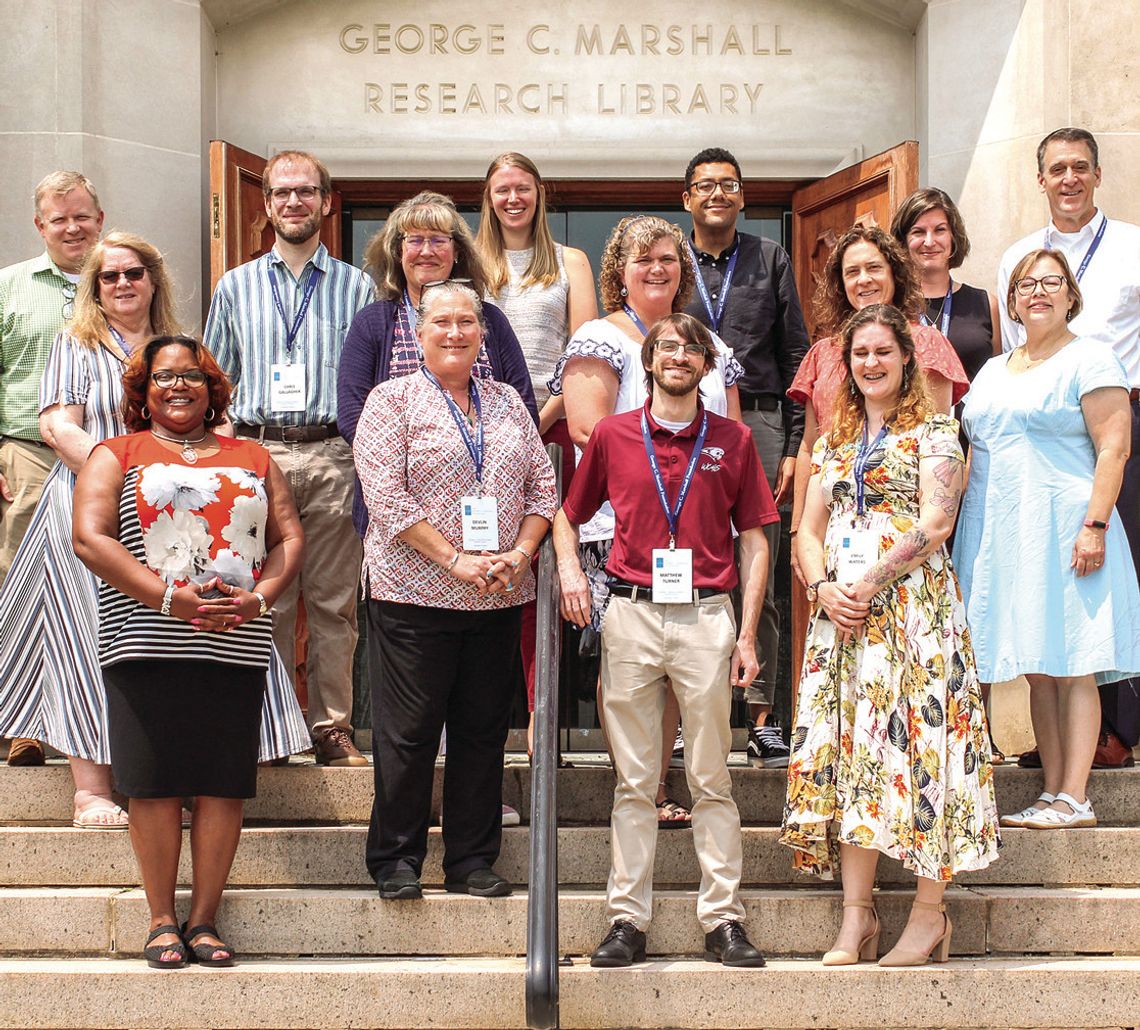The George C. Marshall Foundation held a weeklong professional development seminar for secondary school teachers at its Lexington headquarters in June. The program, spearheaded by Dr. Bradley Coleman and Amanda Conway, brought 11 teachers from across the commonwealth to the Marshall Foundation to discover resources, network with historians, educators and economists, and develop lesson plans.
“George Marshall is an essential part of 20th century U.S. and world history,” said Coleman. “He appears in the Virginia Standards of Learning, but most educators are not equipped to teach Marshall. Yes, Marshall is a vehicle for learning about the past. He is also a model for ethical leadership and conduct. The lessons of the Marshall story are relevant today.”
The seminar included presentations from experts like economist Dr. Benn Steil, senior fellow and director of international economics at the Council on Foreign Relations, and Dr. Seth Rotramel, historian at the Office of the Historian for the U.S. Department of State. Participants also took field trips to archives at Virginia Military Institute and Washington and Lee University, as well as to George C. Marshall’s home in Leesburg.
“This was by far the best week of professional development I have ever had,” said participant Matthew Turner, who teaches at Warren County High School. Devlin Murphy, a teacher at Manchester High School in Chesterfield County, wrote, “I have loved the entire program. To be given the gift of learning about an incredible American patriot and to find a way to share that knowledge with my students – priceless. I have never felt as valued as an educator as I have this week.”
Marshall is best known for organizing victory in World War II, serving as secretary of state under President Harry Truman and later as Secretary of Defense during the onset of the Korean War. He was awarded the Nobel Peace Prize in 1953 for his advocacy for the Marshall Plan, an unprecedented humanitarian relief effort that saved Western Europe from economic chaos and prevented it from falling under Soviet control. The George C. Marshall Foundation preserves his legacy through research, digital resources and educational programs.
“I was incredibly impressed by the dedication and creativity of the teachers we hosted this summer,” said Dr. Paul Levengood, Marshall Foundation president. “They will teach in excess of 1,200 students this school year, and I know that they will use what they learned here to help these young people understand that Marshall’s accomplishments are central to understanding the 20th century. This group of educators renews my faith in the possibility to make real change through education.”
Looking to next year, Coleman added “The lessons learned in 2023 will shape future offerings – we are dedicated to continuous improvement. The potential of this program is breathtaking. Our teachers will have over 1,200 students in the classroom this year. We have the opportunity to transform the way Marshall is taught in middle and high school classrooms.”
To learn more about the Marshall Foundation and sign up for the 2024 Teachers Institute waitlist, its website can be accessed at www.marshallfoundation. org.
.jpg)



